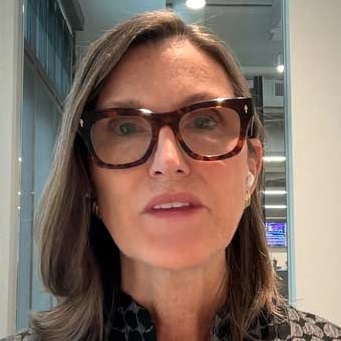Emma Wall: Hello and welcome to the Morningstar series, 'Ask the Expert.' I'm Emma Wall and here with me today is Morningstar's Dan Kemp.
Hello Dan.
Dan Kemp: Hi.
Wall: So, we've had some news this week. Neptune has come out and said they are going to prioritise active share, to which I think a lot of people said, what is active share?
Kemp: And I don't blame them. It's a quite new measure and a very trendy one. A lot of people are now focusing on active share whereas previously they focused on older tracking measures like tracking error or benchmark risk, but active share is where all the action is at the moment.
Wall: An active share is not to be confused with the share classes. This is to do with actively-managed funds.
Kemp: There is an element, that's right. It's not about a type of share class. It's all about how different your fund is from the benchmark. So, if your holdings, both the weight and the selection of holdings, are very different from the benchmark, that's deemed to have a high active share and if you look much more like the benchmark that would be a low active share.
Wall: So, for example, if your benchmark has 4% in HSBC and you only have 0.6% in HSBC, that difference there is the active share?
Kemp: Exactly right, yeah.
Wall: That leads to the question, is active share good or is active share bad?
Kemp: Well, there's been a lot of studies. Well, the early studies said that active share is very good and it does show a degree of confidence in the investment process and a manager that's really trying, that's got to be a good thing. But more recent studies have shown that it's not just active share that makes the difference. Other factors like holding periods also have a huge impact on returns.
Wall: I think also with investors you think U.K. equity, great, that means I'm going to be buying a fund that has U.K. equities in it and in your mind, you will think, for example, the FTSE 100. So, if you differentiate too far from that I think what investors' expectations and reality can become divided?
Kemp: That's right. Active share is a very good way of cheating essentially of making your portfolio look very different from the benchmark against which it's measured. But at the end of the day, it's all about making money for clients and if you have a high active share then you've got a better chance of doing that.
Wall: That's because it means that you're not going to be a closet benchmark tracker, doesn't it? You're not an active fund manager or a wolf in sheep's clothing?
Kemp: Exactly right. If you are going to invest in a fund that looks like the benchmark, you might as well buy the benchmark in terms of the tracker, you're likely to get a much better deal.
Wall: Looking then at benchmark, the industry uses benchmark as a way of showing investors how they have done in comparison to an index. If we're going to be concentrating on active share, does this mean that the benchmark is null and void?
Kemp: Well, that's why I think of it as a good form of cheating because it does nullify some of the benefits of having a benchmark and it does make the outcome more variable. But generally, if a manager is trying to invest in the right areas, they are trying to be U.K. equity fund manager, it's just different from the benchmark, we think that's fine.
Wall: Also, do you think there is an element that the firm such as Neptune and Threadneedle who have come out and said they are going to be releasing its active share are to be applauded because at the end of the day it's transparency and transparency is good for investors.
Kemp: Well, it's already a data point that we look at at Morningstar and make available. So, we love funds that disclose what their active share is; if not, we'll just look it out for ourselves.
Wall: Dan, thank you very much.
Kemp: You're welcome.
Wall: This is Emma Wall for Morningstar. Thank you for watching.


























